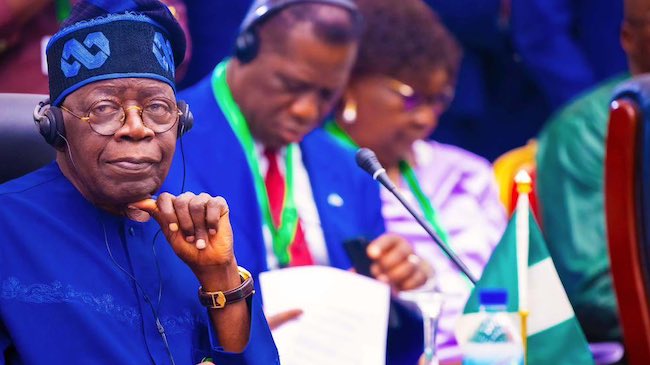
Badejo said the ECOWAS and the President Bola Tinubu-led Federal Government should have adopted diplomatic ways of solving the coup-related issues rather than issuing threats after the military takeover in Niger.
The military regimes in the three countries announced their immediate withdrawal from ECOWAS.
The leaders of the three Sahel nations on Sunday issued a statement saying it was a “sovereign decision” to leave the ECOWAS “without delay”.
The three countries, which are currently under military rule, said they ceased to be members of the ECOWAS as the regional body had allegedly “moved away from the ideals of its founding fathers and pan-Africanism.”
Struggling with jihadist violence and poverty, the regimes have had tense ties with ECOWAS since coups took place in Niger last July, Burkina Faso in 2022 and Mali in 2020.
On July 26, 2023, the democratically elected and constitutionally installed President Mohamed Bazoum was detained by the military leaders led by Gen. Abdourahamane Tchiani.
On July 30, 2023, ECOWAS, led by Tinubu, decided on sanctions against the military personnel in Niger who toppled Bazoum’s government.
In addition to a one-week ultimatum to restore constitutional order and the suspension of financial transactions with Niger, ECOWAS decreed the freezing of “all service transactions, including energy transactions.”
Also, after a meeting in Abuja in August 2023, ECOWAS resolved to deploy troops in Niger following the refusal of the military leaders to restore democracy despite the sanctions imposed on them and their collaborators by the sub-regional body.
But speaking on Tuesday during an interview on Arise TV, Badejo said the Federal Government failed to consider all factors before taking its initial decision.
He said, “I definitely hope that the current administration will not reverse the efforts of those who started the project of ECOWAS. I hope it will be able to overcome the current problem and ensure that things are working fine.
“I feel that there is a problem and it does not seem to me that we considered all the factors when we took the effort that we took initially where we left diplomacy in favour of issuing threats when we are not sure of our own capacity to able to carry such threats forward.
“Countries that issue threats in international relations immediately follow it up without having to be guessing. In our situation, we have not done fairly well in terms of the way we have handled the Niger coup which has led to the unity of purpose by Niger, Mali and Burkina Faso in wanting out of ECOWAS.”
Badejo added, “So, invariably, there is the need for diplomacy as opposed to talking tough. It appears to me that we are still talking tough or better still, we are trying to play it both ways because the statement that came from Foreign Ministry Affairs was very nice and leaves the possibility of dialogue.
“But then, there was another statement yesterday indicating that we are closing our airspace for aircraft flying from Nigeria to Niger and vice versa. Those kinds of actions are not in our long-term nor short-term interests.”
The Federal Government had on Monday said it was open for engagement with Burkina Faso, Mali and Niger Republic despite indicating their joint withdrawal from the ECOWAS.
In a statement signed by the spokesperson for the Ministry of Foreign Affairs, Francisca Omayuli, the apex government said Nigeria stands with ECOWAS “to emphasise due process and shared commitment to protect and strengthen the rights and welfare of all citizens of member states.”
“Nigeria remains open for engagement with Burkina Faso, Mali and Niger so that all the people of the region can continue to enjoy the economic benefits and democratic values that ECOWAS embraces.
“Nigeria further appeals to the international community to continue to extend its support for ECOWAS and the vision of closer partnership, cooperation and integration.”





